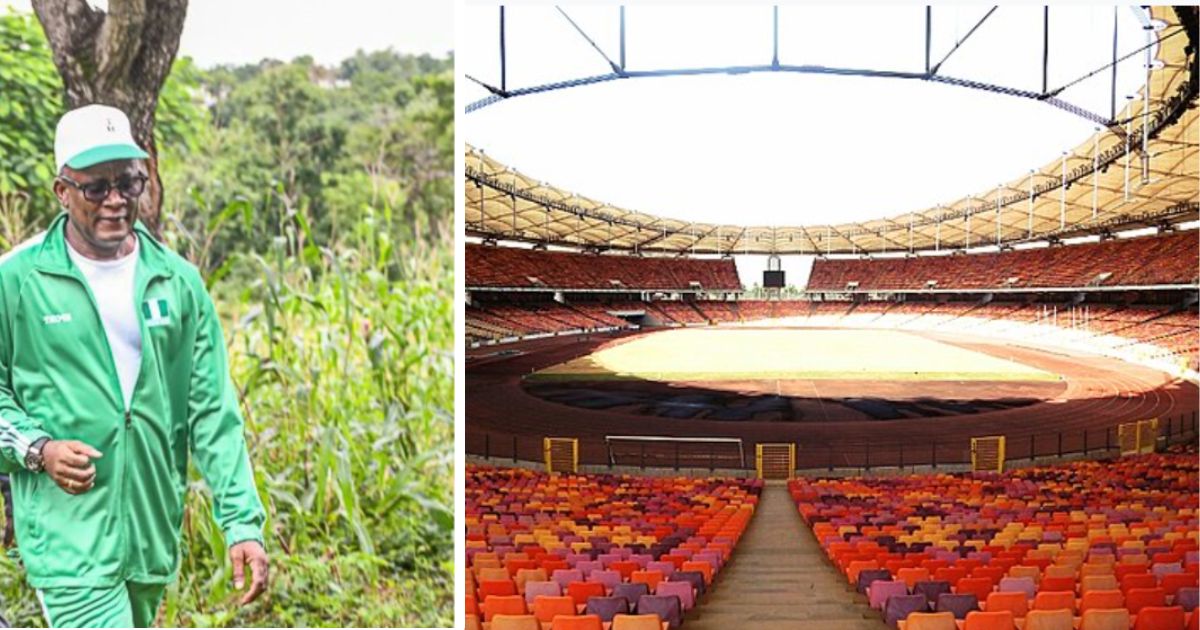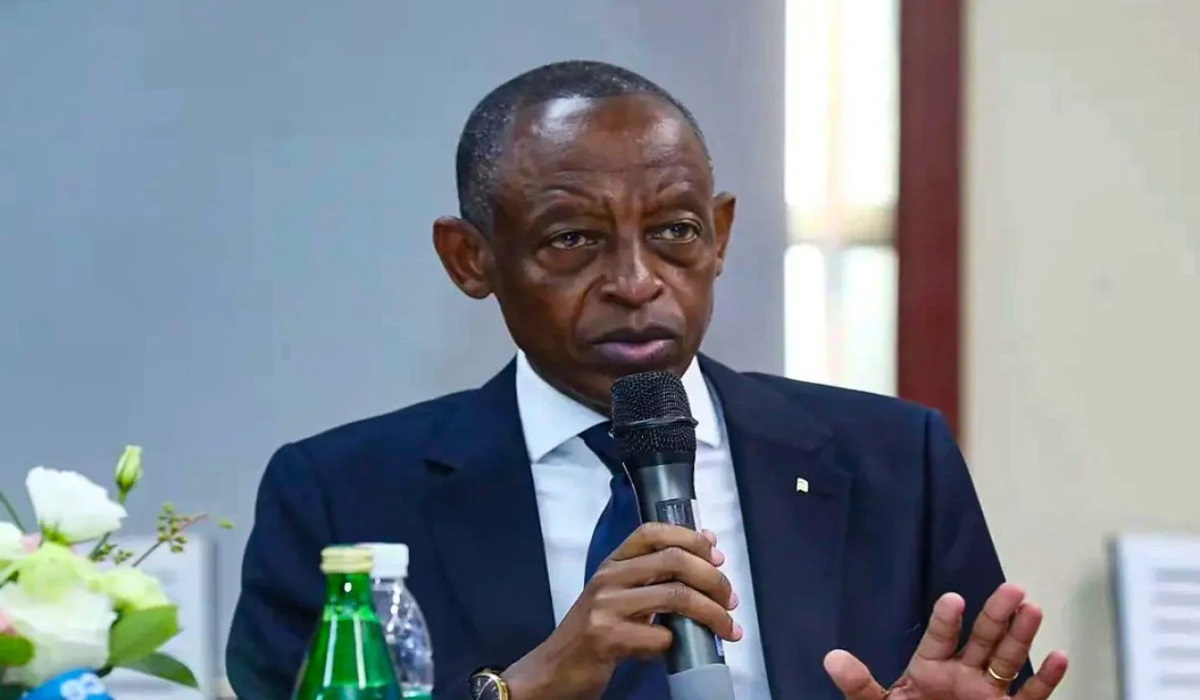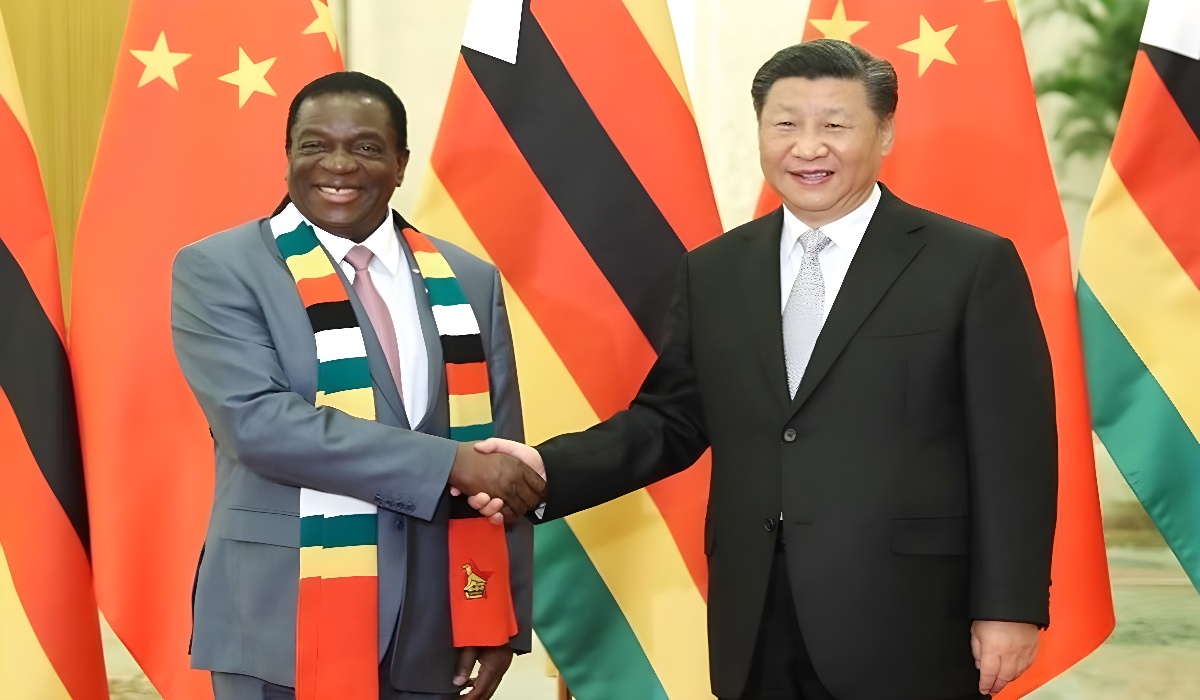The Significance of John Owan Enoh’s Visit to Sporting Facilities
“By visiting the MKO stadium with key ministry officials, the Minister has shown that he “perceives the felt needs of the community.” The national facility is an essential face in the country’s sports, often perceived as a national shrine in Nigeria’s sports tradition.”
Nigeria’s Sports Minister, Senator John Owan Enoh, undertook a tour of sporting facilities at the country’s National Stadium in Abuja yesterday. The new Minister’s sightseeing of critical sporting assets indicates that he is determined to be a visible and available public servant willing to feel the pulse of his new office. The maiden outing further highlights the Minister’s proactive leadership qualities in an office that calls for continuous public actions.
In a previous article about the Minister’s appointment, this writer remarked: “Sports bring out the best in people and call for active engagement, agility, empathy, and much more. What now stares at the country’s new Minister of Sports is not a challenge. Instead, it is a public service meeting that he will ultimately find familiar.”
True to prediction, Senator John Owan Enoh has displayed a penchant for quantifiable civic action just a few days after assuming a lofty public office. But this may be familiar to watchers of the man’s public engagements. As highlighted by public affairs commentators, he has consistently displayed a practical approach to community issues. The visit to the Moshood Kashimawo Olawale (MKO) Abiola stadium is significant both in a private and public sense. Substantially, it also reveals leadership qualities that scholars have promoted.
In his seminal academic book, Sociology of Nigerian Rural Society, Dr. Emmanuel C. Ihejiamaizu dwells heavily on “the meaning of a leader and leadership.” The author writes: “Ihejiamaizu sees a leader as a person who has the ability to inspire voluntary followership in setting and achieving objectives. In other words, a leader is one who shows the way for others to follow. That is a person who first perceives the felt needs of the community before anyone else and initiates plans towards getting others to cooperate and take action. A leader achieves results through people because he has a vision of where the group is going.”
By visiting the MKO stadium with key ministry officials, the Minister has shown that he “perceives the felt needs of the community.” The national facility is an essential face in the country’s sports, often perceived as a national shrine in Nigeria’s sports tradition. But it has recently suffered unnecessary neglect and is fast losing its charming attraction due to pitiable maintenance underlined by poorly manicured landscapes here and there.
The Sports Minister has worked hard in his first few days in office. This display is significant as well. Dr. Emmanuel Ihejiamaizu has observed that “leadership is a herculean task that requires hard work, diligence, commitment and exertion of energy in policy formation, planning, implementation, monitoring and evaluation.” Senator John Owan Enoh is giving us hope that he is willing and able to make an impact on his current national duty. And it is only appropriate to note his engagements as analysts and writers invested in sports and its wellbeing in the country.
“Good Example” is another quality the Sports Minister has demonstrated while visiting the national stadium and donning the patriotic colors of green and white. His outfit was hugely symbolic of national pride. The sociological scholar cited above makes a point about “good example.” The academic observes that “one major tragedy that has struck the Nigerian nation since October 1, 1960, when she attained independence” is that the country has had “leaders who lead by precepts and not by example.”
It is of little surprise that Senator John Owan Enoh is exhibiting several leadership qualities that sociology authorities have advocated. The Minister has a graduate degree in Sociology and once lectured in the field at the Federal University of Calabar, Cross River State. The Sports Minister finds his academic and practical experiences accessible as he takes on the staggering task of rethinking Sports in Nigeria. And this is where he may have the edge over some of his colleagues in public service. Analysts are watching his journey around Sports with interest.









